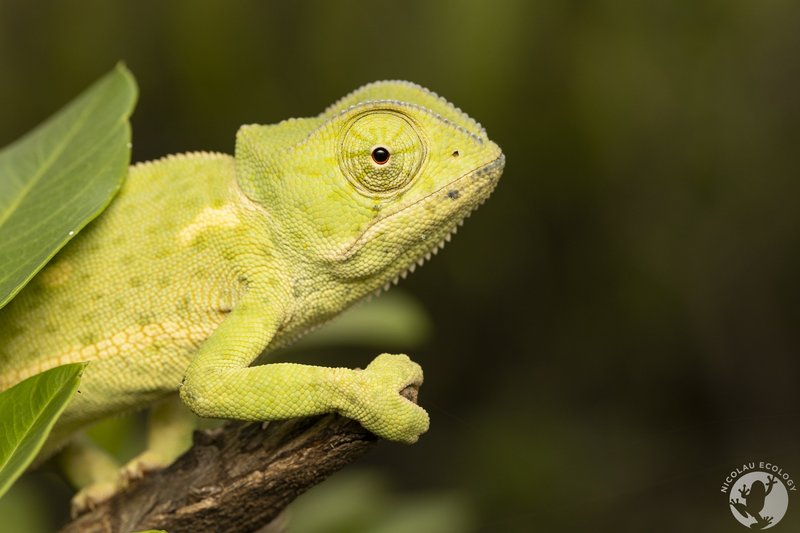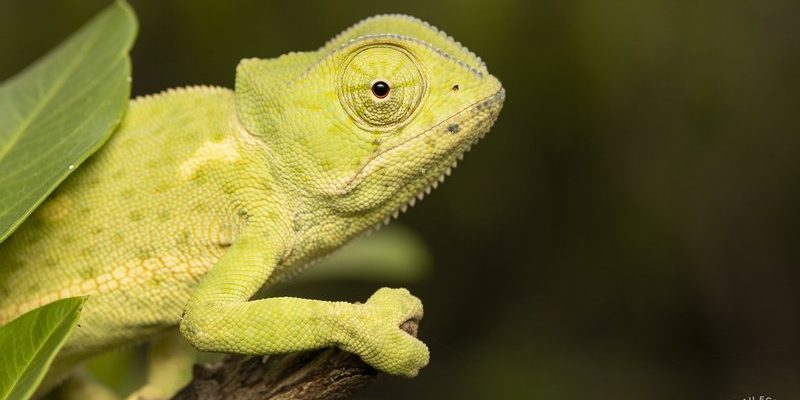
So, what exactly should you watch out for? This article will dive into the most common health issues that may affect your flap-necked chameleon and offer some guidance on how to spot these problems early. Think of it as your helpful coffee chat about pet care. It’s all about being informed and ready to help your little friend thrive!
Respiratory Infections
Respiratory infections are among the most common health problems for flap-necked chameleons. Just like humans catch colds, these reptiles can get sick from bacteria, fungi, or environmental stress. You might notice signs like wheezing, labored breathing, or a runny nose. Notably, if you see your chameleon sitting with its mouth open frequently, that’s a big red flag.
One reason these infections happen is because of improper humidity levels. Chameleons thrive in specific humidity ranges—from about 50% to 70%. If the air is too dry, their respiratory system can become vulnerable. Make sure their habitat includes a reliable source of moisture, like a misting system or a simple spray bottle to keep things fresh.
Be on the lookout for other signs, too. If your chameleon is lethargic or refuses to eat, it could be feeling under the weather. If you suspect a respiratory infection, it’s important to consult with a vet who has experience with reptiles.
Dehydration
You might not think about it, but dehydration is a sneaky threat to flap-necked chameleons. These creatures need a steady supply of water, often absorbed through their skin or by drinking droplets from leaves. Without enough moisture, they can quickly become dehydrated, which can lead to serious health issues.
Signs of dehydration include sunken eyes, a dull appearance, and lethargy. If you notice these symptoms, it’s time to take action! Mist their habitat regularly to create a humid environment. Another tip is to provide a small water dish, or better yet, use a drip water system that mimics rain. This way, your chameleon can drink when it wants to, much like it would in the wild.
Remember, an ounce of prevention is worth a pound of cure—keeping your chameleon’s environment humid is key to preventing dehydration in the first place.
Nutritional Deficiencies
Flap-necked chameleons need a well-balanced diet, primarily consisting of live insects like crickets and mealworms. But sometimes, they don’t get all the vitamins and minerals they need. This can lead to nutritional deficiencies, causing issues like weak bones or poor color.
To keep your chameleon healthy, it’s crucial to provide a varied diet. Dusting their food with calcium and vitamin supplements can help. Think of it like making sure you eat your veggies! You can rotate different insects into their meals to add variety and nutrition.
Monitor how your chameleon eats. If it seems picky or isn’t eating much, it might be time to reevaluate its diet and consult your vet for tailored advice. Remember, a happy chameleon is one that has a well-rounded diet!
Metabolic Bone Disease
Metabolic Bone Disease (MBD) is a serious condition that stems from inadequate calcium and vitamin D3. This illness can cause severe deformities and weakness in your flap-necked chameleon. Imagine if your bones were too weak to support you—that’s what MBD can be like for these lizards.
To prevent MBD, offer a proper diet rich in calcium and ensure your chameleon gets enough UVB lighting. UVB rays are crucial for synthesizing vitamin D3, which helps in calcium absorption. If they don’t have access to these rays, their body can’t use calcium effectively, leading to serious health issues.
Keep a close eye on your chameleon’s behavior. If it starts to appear wobbly or has difficulty climbing, it’s time to check in with a vet. Early intervention can make a big difference in treatment.
Parasites
Just like any pet, flap-necked chameleons are at risk for parasites, both internal and external. These uninvited guests can wreak havoc on your chameleon’s health. Look for signs such as weight loss, diarrhea, or visible worms in their feces. If you notice any of these symptoms, it’s crucial to act quickly.
Preventing parasites begins with maintaining a clean environment. Regularly clean their habitat and ensure their food sources are safe and healthy. If you’re unsure about the quality of the insects you’re feeding, consider breeding your own or purchasing from a reputable source.
If you suspect your chameleon has parasites, don’t hesitate to reach out to your vet. They can perform tests and recommend the right treatments to get your chameleon back to its vibrant self.
Stress and Behavioral Issues
Chameleons can be quite sensitive creatures. Changes in their environment, such as new pets, loud noises, or even a poorly set-up habitat can stress them out. Stress can lead to a whole range of health issues, from a weakened immune system to abnormal behaviors.
You might notice signs of stress in your chameleon, like hiding more than usual or displaying aggressive behavior. To help your little friend, ensure their habitat is stable and quiet. Providing plenty of hiding spots can give them a safe space when they need it.
Always observe how they interact with you and their environment. If your chameleon becomes overly stressed, it might be worth consulting an expert to help you create a more peaceful habitat.
Keeping a flap-necked chameleon can be a rewarding experience, but it comes with responsibilities. Understanding the common health issues they face is essential for providing the best care possible. From respiratory infections to nutritional deficiencies, being proactive can help prevent many problems before they start.
Taking the time to create a comfortable environment, offering a balanced diet, and staying alert for signs of illness will go a long way in ensuring your chameleon stays healthy and happy. Remember, it’s all about understanding their needs and being ready to seek help when necessary. Your flap-necked chameleon can live a vibrant life, and with your attentive care, it will surely thrive.

